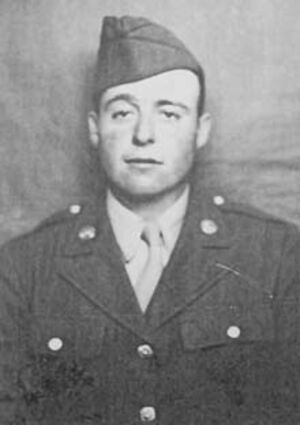Letter from a veteran
November 17, 2022
Going through a box of old photos, I ran across this letter which my dad, Verel Whitleley, wrote to the Nelson Gazette on April 9, 1944. I believe it was published shortly thereafter. He was 20 years old at the time, and was stationed in the Philippines during the big war. He came home in the spring of 1946, met my mother and the rest is history. This letter depicts the beauty of the country and some of the better conditions our soldiers lived through at that time. This was retyped by censors and the copy I have is a typed copy, which I am sending as it is written adding some punctuation. Debbra Whiteley Troudt
----
Hello Friends,
Yes, it is me. As you can see I have a little change in my address, about 7,000 miles. I am somewhere in the fascinating islands of New Guinea. It is a beautiful place and is nice and warm. It rains here nearly every day. It is a nice warm Easter Sunday. A friendly plane roars overhead. From where I am sitting here in my tent I can look out across the creek which runs nearby, which comes from the mountains. On the opposite side is a steep side of the mountain ascending upward into the low hanging clouds. It is covered with trees, vines and plenty of under brush, which makes it almost impossible to climb. As I look to my right, I see nothing but mountains. They seem to reach up into the sky, as if they are trying to protect us from whatever is on the other side. They are covered with trees and foliage alike. Trails run here and there, and they are made mostly by natives.
Now let us take a trip up through the mountains. We throw a pack on our back and start up a trail which follows the creek. The sun comes out and its sharp warm beams seem to draw the sweat through your clothes. There is a faint breeze which is cool now, but as we go farther into the jungle the breeze dies down and the trees shade you from the sun. The trail now is slippery and the mud gets deeper. As we sit down to take a breath, a swallow of water and a few drags on a cigarette, we glance to our left. We see a couple of white parrots sitting on a limb looking down at us kind of puzzled. Above them sits a black and yellow canary which now has resumed its sunning. Off to our right we see a wild hog scampering off through the wild jungle. Ahead we see the high waving tops of the cocoanuts, which hang in bunches.
Our 10-minute break is over, and we start up the long muddy and endless trail again. We see banana trees loaded with green bananas. As noon draws near, we hunt a place to rest our weary muscles and eat a few bites of our rations which we carry in our packs. After about a 30-minute rest we resume our hike.
As it begins to get dark, which is about five o'clock in the afternoon, we meet a few natives who live up in the mountains. They smile and say, "Hi Joe," as they pass. We then hunt for a place to pitch our hammocks. We give a native a cigarette to put it up for us. Then we go down to the creek and wash off.
After our scanty meal of hard tack biscuits and canned meat, we flop in our hammocks for a good night's sleep. It is pitch dark, you can't see your hand before your face. You hear all kinds of sounds up through the jungle. You lay in your hammock, nerves tense, ready for instant action. A wild scream comes to your ears, which sounds very near. You jump up in bed with a knife in one hand and your rifle in the other. Someone curses and lays back down, because it was only a couple of birds fighting.
The next morning you attempt to move your stiff and sore muscles getting out of bed. We roll up our hammocks, stuff them in our packs and eat a few bites, fill our canteens with water and retrace our steps back to the battery area. Our whiskers seem to have grown a half inch since we left. We pull off our muddy boots and clothes, then start to clean our dirty and possibly rusty rifles.
Within two hours we are ready for a good nights rest in our tents. Incidentally the last one I was on, I nearly got washed away. I stretched my hammock too close to the creek. During the night the creek came up caused by a heavy rain, and nearly took me down stream. The water came within four inches of the bottom of my hammock.

Pvt. Verel W. Whiteley
At first it was hard to get used to the Australian soldiers, but they seem to be good soldiers, and are very friendly people. They are hard people to understand until you get used to them. Although their equipment isn't as good as ours, they are doing a splendid job of fighting. Many are the yellow bellies who have been put under the earth by an Australian soldier.
It is getting close to chow time, so I guess I had better close this letter. I want to say hello to all my friends at home and in far away lands. I know many of the boys get the Gazette as I do. I get it regularly and I enjoy it from one end to the other. The boys are doing a splendid job of fighting over here, and I'm sure these little yellow rats have regretted the day they ever started this mess. I do hope, as we all hope, that we will be back in our little home town of Nelson before long.
Pvt. Verel W. Whiteley














Reader Comments(0)